When the head of the world’s largest investment fund raises fundamental questions about U.S. corporations, we should all pay attention.
In a letter earlier this week to the Fortune 500 CEOs, BlackRock Chairman Larry Fink criticized the short-term orientation that he believes shapes too much of today’s corporate behavior. “It concerns us,” he declared, that “in the wake of the financial crisis, many companies have shied away from investing in the future growth of their companies. Too many have cut capital expenditure and even increased debt to boost dividends and increase share buybacks.” And he concluded, “When done for the wrong reasons and at the expense of capital investment, [returning cash to shareholders] can jeopardize a company’s ability to generate sustainable long-term returns.”
Fink is correct on all counts. In a new Brookings paper out today, University of Massachusetts economist William Lazonick states that the 454 companies listed continuously in the S&P 500 index between 2004 and 2013 used 51 percent of their earnings to buy back their own stock, almost all through purchases on the open market. An additional 35 percent went to dividends. “Buybacks represent a withdrawal of internally controlled finance that could be used to support investment in the company’s productive capabilities,” he said.
This is bad for the economy in two ways. As the growth of the U.S. workforce slows dramatically, economic growth will depend increasingly on improved productivity, must of which comes from raising capital investment per worker. Failing to make productivity-enhancing capital investments will doom our economy to a new normal of slow growth.
Many business leaders say that they are reluctant to make long-term investments without reasonable expectations of growing demand for their products. That brings us to the second way in which corporate short-termism is bad for the economy. Most consumer demand comes from wages. If employers refuse to share gains with their employees, growth in demand is bound to be anemic.
Although he clearly cares about his country, Fink is also acting as the steward of $4.8 trillion in investments. In an article published by McKinzie earlier this month, he warns that although the return of cash to shareholders is juicing equity markets right now, investors “will pay for it later when the ability to generate revenue in the long term dries up because of the lack of investment in the future.”
Unlike most other corporate leaders who express concerns about these developments, Fink is unwilling to rely on moral suasion alone. Because current incentives are so perverse, he argued, “It is hard for even the most dedicated CEO to buck this trend.” The constant pressure to produce quarterly results forces executives to go along—or risk losing their jobs. That pressure comes from investors who are, in Fink’s words, “renters, not owners, who are going to trade your stock as soon as they can pocket a quick gain.”
This logic leads BlackRock’s chairman to propose changing the tax code by lengthening to three years the the period needed to qualify for capital gains treatment while taxing trading gains at an even higher rate than ordinary income for investment held less than six months. To encourage truly patient capital, the capital gains rate would be stepped down to zero over a period of ten years.
We can argue the merits of this idea, and we should. But the main point should be beyond argument. We need more builders and fewer traders, more Warren Buffetts and fewer Carl Icahns. And to get them, we’re going to have to change the laws governing corporate and investor behavior. Fink has opened up a crucial debate, and it’s time for Congress and presidential aspirants to join it.
The Brookings Institution is committed to quality, independence, and impact.
We are supported by a diverse array of funders. In line with our values and policies, each Brookings publication represents the sole views of its author(s).
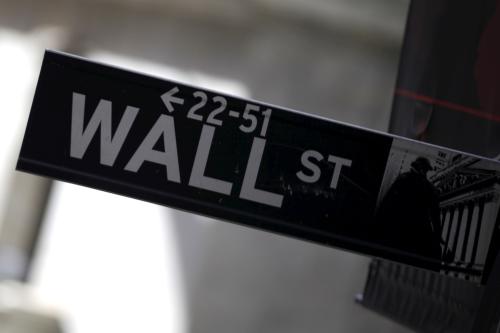
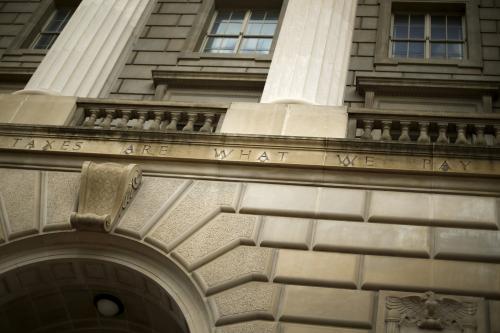
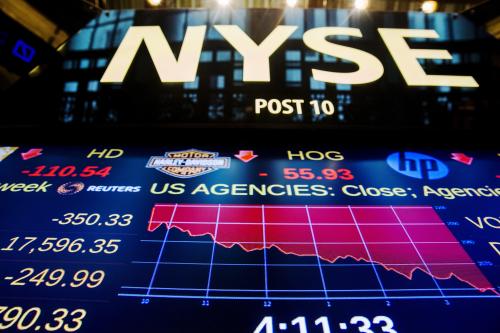
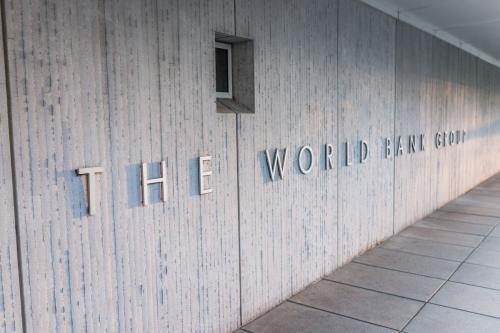
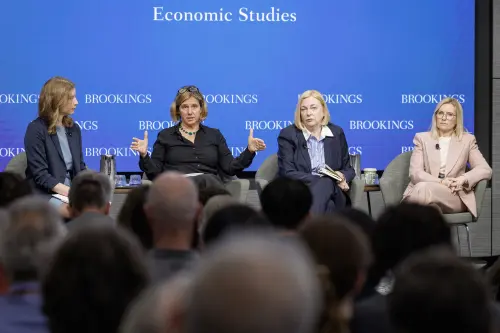

Commentary
Overcoming corporate short-termism: Blackrock’s chairman weighs in
April 17, 2015